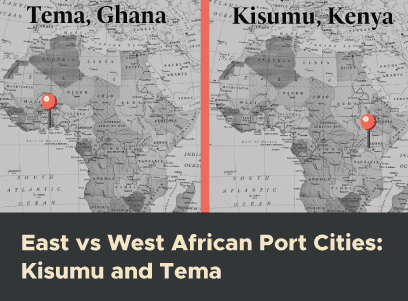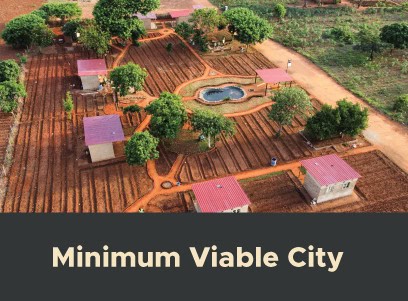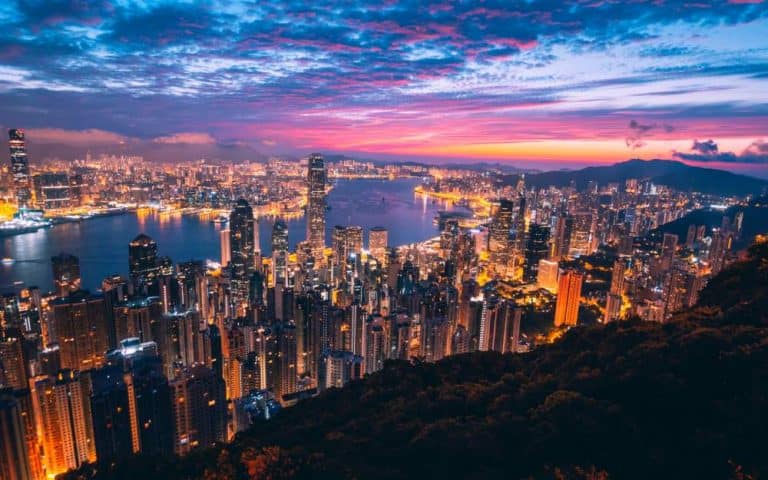Imagine you adopt Rawls’ veil of ignorance and are given the option of living in a low-income city with a new port, or a low-income city where everyone has malarial bed nets. Which would you choose?
In January Somaliland passed legislation creating the Berbera Free Trade Zone. Dubai Ports World has invested over $400 million building a new port in Berbera. The Vice President of Dubai Ports World said, “our vision for Berbera is to make it a regional maritime hub in the Horn of Africa and its development will encourage growth for the region’s economy.” Presumably this will have some impact on economic development.
The passage of the Free Trade Zone legislation was largely ignored by the international development community. There are no relevant hits to ‘Somaliland Free Trade Zone UN’ or Somaliland Free Trade Zone World Bank.’ Nor was there any discussion of the port on development twitter.
The last 5 articles in the Journal of Development Economics, the premier international development journal, are: ‘Information, get-out-the-vote messages, and peer influence: Causal effects on political behavior in Mozambique’, ‘Colonialism and female empowerment: A two-sided legacy’, ‘The long-term consequences of China’s “Later, Longer, Fewer” campaign in old age’, ‘Welfare rationales for conditionality of cash transfers’, and ‘Discrimination from below: Experimental evidence from Ethiopia’. Interesting topics, I’m sure, and in fairness, examining a single issue is unlikely to find any topic. However, searching the journal for ‘port’ hardly turns up any better examples. Where are you to look if you want to understand the role of ports in economic development?
The Charter Cities Institute has written about the Berbera port on two occasions. We’re practically alone in doing so.
It would be one thing if the importance of ports in economic development were common knowledge. If everyone learned in graduate school that ports contribute to development by facilitating trade, creating new markets, and accelerating knowledge transfer. Except I don’t remember studying ports in graduate school.
One way to judge a field of study is the eye test; i.e., does the field focus on things that are important to the fields stated goals? If rocket engineers studied earthworms, they would not pass the eye test as earthworms have no impact on rockets. Are ports important to development? Yes! Of course, ports need trade to justify the investment, governance to ensure effective operation, capital to be built and maintained. That ports are part of a larger process that can be described as development does not make them unimportant.
Perhaps this is being unfair to development economics. Well, have you heard of Millennium Villages? The first Millennium Village launched in 2005. It was Jeffrey Sachs’ brainchild to create a coordinated big push to end poverty. By empowering villages with education, medicine, job training, and infrastructure, they’d be able to alleviate poverty. Wikipedia reports DFID committing $18 million in grants and Islamic Development Bank committing $29 million in low-income loans. This is almost certainly underestimating the total cash contribution.
Beyond monetary support for Millennium Villages, it attracted the interest of well-known development economists. Michael Clemens wrote a paper evaluating them. Chris Blattman blogged about them frequently in the early 2010s. Nina Munk wrote a great book. Millennium Villages were a significant topic of discussion in international development for the better part of a decade.
Was it wrong to spend that energy on Millennium Villages? Perhaps. On one hand, it was an innovative and comprehensive solution to poverty, if it worked. On the other hand, it didn’t take incentives, governance, or the embedded nature of economic development seriously enough.
Perhaps a fraction of that energy could be spent on ports and related free zones. The Somaliland Free Trade Zone on first look appears genuinely innovative. It is modeled on the Jebel Ali Free Zone, the first free zone in Dubai. The Jebel Ali Free Zone is interesting, in part because it played a key role in Dubai’s economic development, and in part because it’s a radical departure from most free zones and special economic zones.
Dubai realized that to attract investment they needed to create a better regulatory environment. The Jebel Ali Free Zone did that by adopting a civil code that would be more intelligible and secure for international companies. The Somaliland Free Trade Zone is following that idea. The governing authority has “exclusive regulatory jurisdiction over all Special Economic Zones,” a far more expansive authority than most free zones and special economic zones which just make marginal changes around the edges.
Will the Somaliland port and Free Trade Zone be successful? Probably, though the Ethiopian conflict could be a wrench in the short-term plans. To return to the thought experiment at the beginning of this essay, I would rather live in the city with the port, and I suspect most would agree with me.







